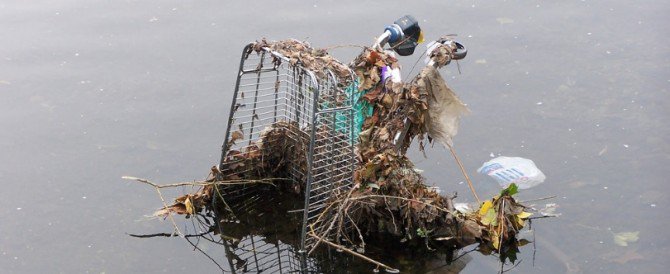You might think twice about buying furniture made from tropical timber. But would you think twice about buying margarine, chocolate, shampoo, cereal or soap? A new report reveals just how likely it is that we are filling our shopping trolleys with products that are pushing the world’s tropical forests towards extinction. A gaping hole in international law also means that we have very little way of ensuring that those products don’t also come from land that has been illegally or violently taken from the people who live on it.
The report, by NGO Forest Trends, shows that 71% of tropical deforestation between 2000 and 2012 was as a result of commercial agriculture. Many people have never heard of palm oil but it is the most widely consumed vegetable oil on the planet and is present in about half of all packaged supermarket products. The palm oil we buy practically all originates from areas recently cleared in tropical forests. It might also come as a shock to vegetarians that 70% of internationally traded soy comes from the same such areas, and around one third of exported beef.

Sometimes we are made aware of the dubious links in our supply chains. How Nestle’s plantations destroyed the habitats of endangered orang-utans, for example, or how Coca Cola’s sugar was linked to human rights violations. But more often than not we are oblivious to our own environmental or social footprint.
Staggeringly, of this 71% of total tropical deforestation attributed to commercial agriculture, 69% was cleared illegally, according to Forest Trends. This made way for agricultural products whose largest buyers include the EU, China, India, Russia and the US. Put simply, between 2000-2012 five football fields of tropical forests were illegally flattened every minute to line our supermarket shelves.
This problem is confounded by the fact that the agribusiness industry is pretty ungoverned; lagging behind other natural resource sectors in terms of international trade regulations. Since 2012, the US, Europe and Hong Kong have all introduced binding requirements for oil, gas and mining companies to publicly report on payments they make to governments. Europe, the US and Australia have also introduced laws to prevent the import of illegal timber. No binding international regulations exist, however, to stop agribusiness companies from illegally acquiring, clearing or managing land.
By law Europeans cannot import illegal timber, but amazingly there is no law in place to prevent us from importing food or other non-wood products grown on land from which forests were illegally felled. Some agribusiness companies have voluntary and self-regulatory systems, but these are clearly not working to prevent the spate of land grabs that push poverty in forest-rich countries.
Forest Trends’ report is a wake-up call to anyone who claims that large-scale agribusiness investments are inherently sustainable, equitable or good for development. The fact that companies and their investors are profiting from projects that are illegal, and that consumers are being duped into buying commodities that drive forest destruction and land grabbing, is scandalous.
As global demand for food and basic commodities increases, commercial pressure on land and forests will too. Without clear, binding and enforceable international regulations on agribusiness, a disaster with global implications is beginning to happen.